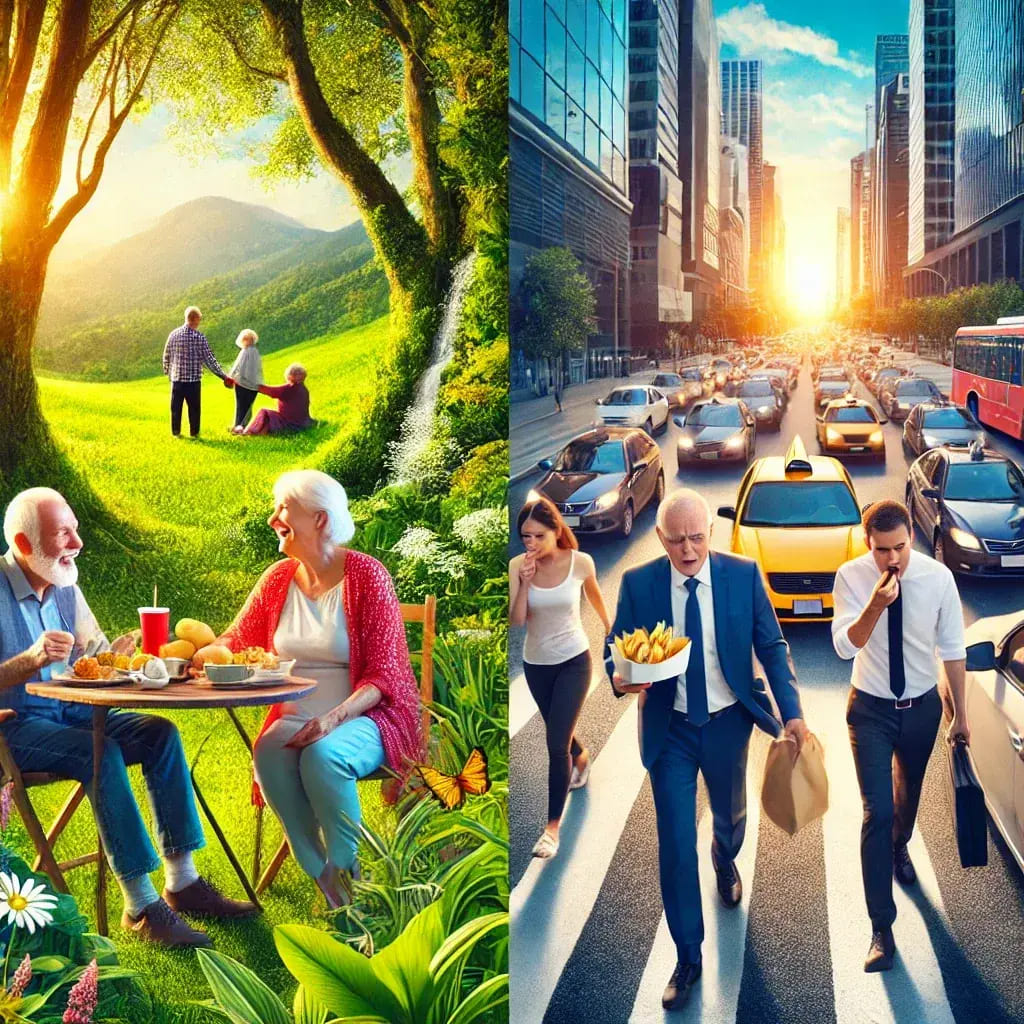
What’s the secret sauce to living a long, healthy life? Is it eating kale, running marathons, or perhaps some age-old mystical remedy? Well, not quite.
When you dig into the reasons why some cultures have longer life expectancies than others, the answer is not just one thing but a complex blend of lifestyle, environment, social systems, and mindset. It’s not just about avoiding death, but about living life in a way that makes those extra years worthwhile.
The Blue Zones – Where Longevity Thrives
Ever heard of “Blue Zones”? These are regions of the world where people regularly live to 100 years old or more. We’re talking places like Okinawa in Japan, Sardinia in Italy, and Nicoya in Costa Rica. What’s their secret? It’s not all about luck or genes, although that helps.
The people here live in tight-knit communities, eat diets rich in whole foods, and, perhaps most importantly, live with purpose. In Okinawa, they even have a word for it: ikigai, meaning a reason to get up in the morning.
I once visited a small village in southern Italy, where most of the residents were pushing 90, and it hit me — they were so chill! No rush, no stress, just a deep connection with their community, the land, and themselves. It was like time moved slower for them.
They ate meals together, walked everywhere, and spent their evenings chatting with neighbors. Life was simple, but it was enough.
The Fast-Paced West – Dying Young from Stress?
Now, let’s flip the script. Why do people in more industrialized nations, like the U.S., often see higher rates of chronic disease and shorter lifespans? Well, it turns out, sitting in traffic, staring at screens all day, and wolfing down fast food between meetings isn’t exactly the path to immortality. Who knew, right?
Sure, access to healthcare and modern technology helps keep us alive longer, but what’s the quality of that life if we’re constantly stressed, disconnected, and unhealthy? Stress is like a silent killer that creeps up on us when we’re not paying attention.
Heart disease, diabetes, and even mental health problems are often linked to the high-stakes, fast-paced nature of Western life. We hustle so hard we forget to live, and by the time we notice, it’s sometimes too late.
Food for Thought
Let’s talk food. In many long-living cultures, like the Mediterranean diet in Greece or the plant-based meals of Okinawa, what they eat is a huge factor in their longevity.
Whole foods, like fresh vegetables, lean meats, and lots of fish, are the cornerstone of their diet. Contrast that with a culture where processed foods, sugary drinks, and fast food reign supreme, and you can start to see the cracks.
I used to think I was eating “healthy” because I’d grab a granola bar or a smoothie from a chain café. But one day, a friend from Japan came over for dinner and pointed out that most of the food in my fridge was pre-packaged.
She was baffled. In her family, they cooked every meal from scratch, and it was often locally sourced. That dinner was a wake-up call — real food isn’t something you get from a box. It’s fresh, it’s vibrant, and it feeds your body in ways processed food simply can’t.
Social Ties
What ties these long-living cultures together, aside from diet and exercise, is their strong sense of community. In Sardinia, the elderly live with their families, surrounded by love and care. In Nicoya, there’s a communal sense of looking out for one another.
People don’t just live longer in these places; they live better, because they are not isolated. They have purpose, they have social connections, and they feel valued.
Imagine being 95 and still having a group of close friends you hang out with daily. Sounds like a dream, right? But in some cultures, loneliness, especially among the elderly, is a real epidemic. You can have the best healthcare in the world, but if you don’t have people to share your life with, it’s hard to stay motivated to live a long one.
Movement, Not Exercise
Another striking difference? Many long-living cultures don’t hit the gym — they simply move. Sardinians walk up hills, Costa Ricans work on their farms, and Okinawans practice traditional dance or garden daily. They incorporate movement naturally into their lives, rather than scheduling it as a task to complete.
I remember feeling guilty about skipping the gym, but then I saw how my Italian relatives lived. They never went to the gym, but they walked everywhere, from the market to the neighbor’s house. That consistent, low-intensity movement kept them fit without the stress of hitting “cardio goals.” Sometimes, less is more.
Culture as a Longevity Factor
At the end of the day, it’s clear that culture plays a huge role in longevity. It’s not about having the fanciest gadgets or the latest diet trend, but about how you live day-to-day. It’s about slowing down, connecting with others, eating well, and finding joy in the little things.
So, if you’re chasing a longer, healthier life, maybe it’s time to ask yourself: What can I borrow from these cultures? Whether it’s ikigai or just taking a few more walks, there’s something to learn from those who seem to have cracked the code on living long and well.
Want to dive deeper into these lifestyle secrets? Check out this Blue Zones research and see how small changes in your daily routine can lead to big results.
Life’s too short to live fast.









